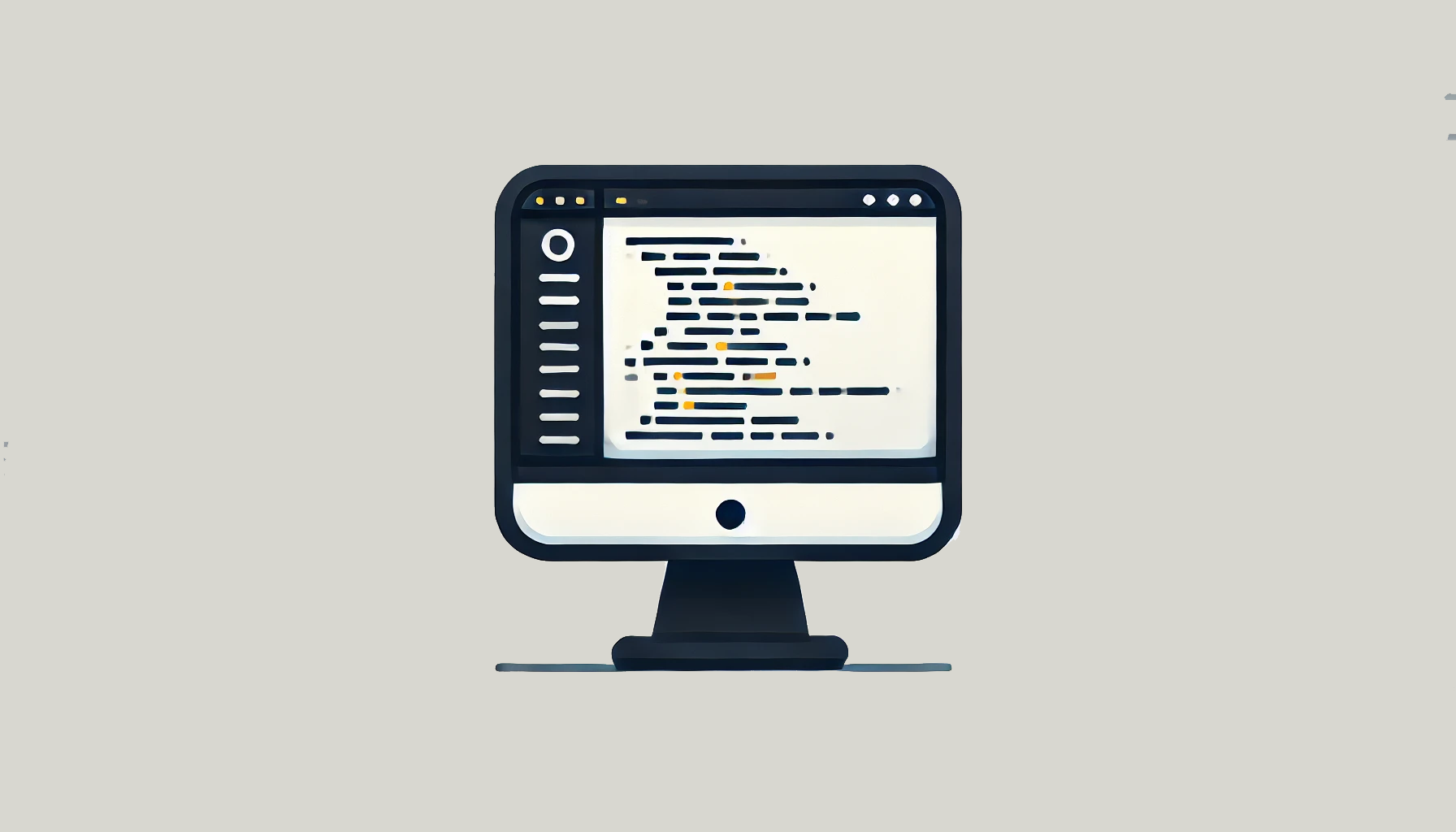Курси по темі
Всі курсиБазовий
C++ Introduction
Start your path to becoming a skilled developer by mastering the foundational principles of programming through C++. Whether you're starting from scratch or already have some coding experience, this course will provide you with the solid foundation needed to become a proficient developer and open the doors to a wide range of career opportunities in software development and engineering. Let's study C++!
Базовий
C# Basics
Get ready to embark on a thrilling coding journey with C# - the language that powers Windows applications, games, and more. Unlock the potential to build everything from dynamic web apps to powerful desktop software. With its elegance, performance, and versatility, C# is your gateway to the future of programming. Let's dive in and bring your coding dreams to life!
Базовий
C Basics
This course offers a thorough introduction to the C programming language. Participants will delve into the core concepts, syntax, and structures of C, equipping them to craft basic programs. Key areas of focus encompass variables, data types, control structures, functions, arrays, and pointers. Engaging hands-on activities and projects will provide learners with tangible experience in problem-solving using C. Upon concluding this course, participants will possess a robust understanding of C programming and be primed to explore more intricate subjects.
The Power of Collaboration or Contributing to Open Source Projects
Uniting in the World of Code

Open source software is a cornerstone of modern programming, rooted in the principles of collaboration, transparency, and community involvement. Unlike proprietary software, where source code is a closely guarded secret, open source projects make their code available for anyone to study, modify, and enhance. This ethos dates back to the early days of software development, fostering an environment where innovation is not just the product of a single company but a collective effort.
Introduction to Open Source
The essence of open source lies in its key characteristics. These projects are not just accessible in terms of availability, but they also invite collaboration from individuals around the globe, regardless of their professional or educational background. This open-door policy has led to the development of software that's often more secure, efficient, and faster to evolve than its closed-source counterparts.
Examples of open source software are all around us. Take Linux, for instance, an operating system kernel that powers millions of servers, desktops, and mobile devices worldwide. Another notable example is Mozilla Firefox, a web browser developed by a global community of contributors. These projects highlight how collaborative efforts underpin significant technological advances.

| Transparency | The source code is accessible and viewable by anyone. |
| Collaboration | Multiple contributors can work together on the same project. |
| Community-driven | Development and support are often provided by a diverse community. |
| Licensing | Open-source software is typically released under an OSI-approved license. |
| Freedom | Users have the freedom to use, modify, and distribute the software. |
| Continuous Improvement | Iterative development with regular updates and improvements. |
| Accessibility | Open to all users without discrimination or restriction. |
| Cost | Generally, open-source software is available for free. |
| Security | Benefits from collective scrutiny, often leading to enhanced security. |
| Flexibility | Users can adapt and customize the software to suit their needs. |
Run Code from Your Browser - No Installation Required

Challenges and Solutions
Contributing to open source is not without its challenges. Newcomers often find themselves overwhelmed by the complexity of large codebases or the intricate dynamics of project management. Rejection or critical feedback on contributions can also be disheartening.
However, these challenges are surmountable. Seeking mentorship from experienced contributors, engaging with the community for support, and using feedback constructively are vital steps in overcoming these obstacles. Remember, every contribution, whether accepted or not, is a learning opportunity and a step towards becoming a better programmer.

Beyond The Code
Other Ways to Contribute
Contributing to open source isn't limited to coding. Many projects are in dire need of non-code contributions, which are often overlooked. Writing or improving documentation is one of the most valuable contributions. Well-documented projects are more accessible, user-friendly, and have a higher adoption rate.
Another significant area is design. If you have a knack for graphic design or user interface design, many open source projects would benefit from your skills. Creating logos, designing web pages, or improving the user interface of a software can greatly enhance its appeal and usability.
Community involvement is another crucial aspect. Engaging in discussions, providing feedback, or helping other users with issues are all valuable contributions. These activities foster a sense of community and collaboration, essential elements of successful open source projects.
The Future of Open Source
The landscape of open source is continually evolving. One emerging trend is the increasing involvement of corporations in open source projects. Many companies are not only using open source software but also actively contributing to it, recognizing the value it brings in terms of innovation and community engagement.
The ongoing impact of open source on the tech industry and beyond is profound. It's not just about software development; it's about shaping the future of technology through collaborative efforts, open exchange of ideas, and community-driven innovation.
Start Learning Coding today and boost your Career Potential

How can I start contributing to open source projects?
A Guide on How to Contribute to Open Source Projects
-
Identify Interests 💭:
- Choose projects aligned with your skills and interests.
-
Explore Platforms 🔎:
- Visit GitHub, GitLab, or Bitbucket to discover diverse projects.
-
Learn Git Basics 📚:
- Master basics like cloning, branching, and pull requests.
-
Study Documentation 🎓:
- Understand project purpose, structure, and coding conventions.
-
Start Small 🌱:
- Tackle manageable tasks like bug fixes or documentation improvements.
-
Engage with Community 🤝:
- Join forums, chat groups, and actively participate in discussions.
-
Follow Guidelines ⚖️:
- Adhere to project contribution guidelines for consistency.
-
Test Your Code 📝:
- Ensure your contributions pass tests and maintain code quality.
-
Submit Pull Request 📤:
- Clearly describe changes and be open to feedback during the review. Celebrate:
-
Share success 🎉:
- update portfolios, and consider more challenging tasks.
Embark on your journey today—discover new friendships and acquire valuable skills by contributing to open-source projects!
FAQs
Q: Do I need prior programming experience to contribute to open source projects?
A: While some experience is beneficial, there are opportunities for beginners, including non-code contributions.
Q: How can I find open source projects suitable for beginners?
A: Platforms like GitHub have 'good first issue' tags for beginner-friendly tasks. Contributing to documentation or small bugs is a great start.
Q: Is it necessary to be proficient in Git to contribute to open source?
A: Basic knowledge of Git is essential, but you can learn more as you go. Many resources are available to help beginners.
Q: Can contributing to open source projects help in career development?
A: Absolutely. It demonstrates your skills to potential employers and helps build your professional network.
Q: What if my contributions to an open source project are not accepted?
A: Rejection is part of the learning process. Use it as an opportunity to get feedback and improve your skills.
Курси по темі
Всі курсиБазовий
C++ Introduction
Start your path to becoming a skilled developer by mastering the foundational principles of programming through C++. Whether you're starting from scratch or already have some coding experience, this course will provide you with the solid foundation needed to become a proficient developer and open the doors to a wide range of career opportunities in software development and engineering. Let's study C++!
Базовий
C# Basics
Get ready to embark on a thrilling coding journey with C# - the language that powers Windows applications, games, and more. Unlock the potential to build everything from dynamic web apps to powerful desktop software. With its elegance, performance, and versatility, C# is your gateway to the future of programming. Let's dive in and bring your coding dreams to life!
Базовий
C Basics
This course offers a thorough introduction to the C programming language. Participants will delve into the core concepts, syntax, and structures of C, equipping them to craft basic programs. Key areas of focus encompass variables, data types, control structures, functions, arrays, and pointers. Engaging hands-on activities and projects will provide learners with tangible experience in problem-solving using C. Upon concluding this course, participants will possess a robust understanding of C programming and be primed to explore more intricate subjects.
Top 25 C# Interview Questions and Answers
Master the Essentials and Ace Your C# Interview
by Ihor Gudzyk
C++ Developer
Nov, 2024・17 min read

AI as a Colleague
How Collaborative Systems Are Reshaping Work Teams in 2026
by Daniil Lypenets
Full Stack Developer
Feb, 2026・7 min read

8 In-Demand Skills to Earn Big in 2025
Skills to stay ahead
by Anastasiia Tsurkan
Backend Developer
Dec, 2024・23 min read

Зміст